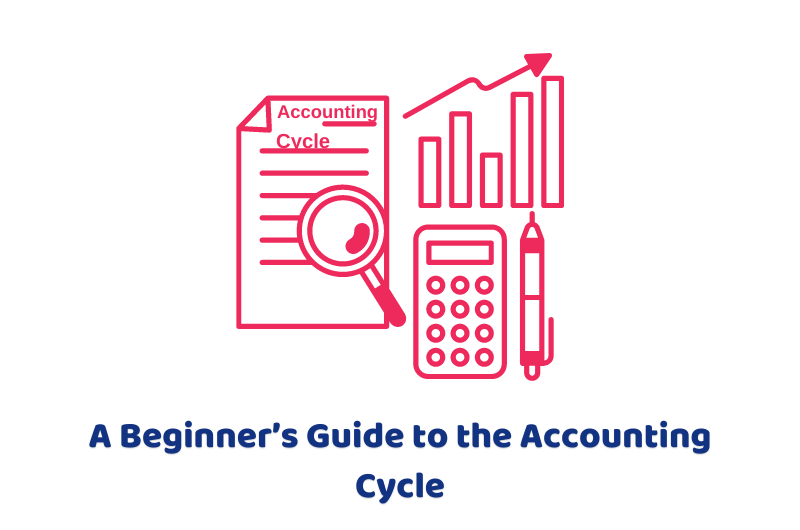The role of accounting is vital whether your company is carrying out small-scale business or large-scale business. No organisation will deny the importance as it is really helpful when it comes to tracking business expenses and income. This kind of quantitative information about business finances will be used further to make the right business choices as well. We all know that accounting is always based on processes and steps. These certain processes and steps are known as the accounting cycle. The primary role of the bookkeepers is to update the record of all business transactions and maintain the general journal in this regard.
This comprehensive guide is compiled especially to cater to queries about the basics of the accounting cycle. This could possibly involve the discussion of what is accounting, what is the purpose of the accounting cycle, how it works, and what are the steps of the accounting cycle. Let us delve into the discussion to gather more information about the basics.
AccountingFirms can assist you in managing the number of benefits of consequences of the accounting cycle in the UK. Let’s talk to one of our professionals to know the details.
What is the Definition of the Accounting Cycle?
The accounting cycle refers to a holistic process that plays an imperative role in making records of all your financial transactions. This happens to businesses when there is a possibility of a successful transaction. Moreover, in the accounting period, a series of steps are observed to do the job of accounting requirements. The accounting period is based on a duration of 12 months. However, this duration of the accounting period can vary from one business to another. Generally, the accounting period is based on the duration between January to December, however, this is not a kind of thumb rule. Because the needs and requirements of a company can be different of other companies.
What is the Purpose of the Accounting Cycle in the UK?
The main purpose of the accounting cycle is to have generated a financial statement for your company. This must be made according to the accounting standards. This should involve the official accounting requirements criteria and make accurate and consistent details. In other words, we can say that the accounting cycle gives you the assurance of the money that is being used for the business is actually happening in a fair manner.
How Does the Accounting Cycle Work?
The accounting cycle is usually dependent on an expert who is known to be a professional accountant and the role of documenting the financial details of your business. By the end of an accounting period, the accounts and records are closed for that specific period. An outline of the steps is listed and explained in the following details.
What are the Prominent Steps of the Accounting Cycle?
As mentioned earlier in the discussion that the accounting period has a chance of being different according to the unique needs of a business. It always varies depending on the company’s needs. However, the steps of the accounting cycle remain almost the same for this cause in every business.
1- The first step is to do the identification of the financial transaction of the business. This will help to create the event of the bookkeeping record. Vendors, sales, and refunds are generally known as bookkeeping events.
2- Make a well-maintained record of all the business financial transactions. This will help to identify the problem for any accounting period at any time of the tax tear.
3- Once you are done with making the record of your transaction details, you will have to post the details further to the general ledger as well.
4- When you are done with the job of ensuring that the record is safe and maintained in the ledgers, you can start preparing the trial balance.
5- Review the details and identify whether there are any errors in the figures. There are generally chances of errors getting identified during this step. Take out conscious time to rectify these mistakes.
6- Now you can make the correct adjustments and add to the record to close the details.
7- After getting along with all the steps, you are now ready to create your financial statements by using all the recorded details of the business.
8- The final step is to close the books after you ensure that all the steps are taken to a level of accuracy.
The Bottom Line
Now that we have gathered a fair amount of information about the consequences of the accounting cycle in the UK, we can bring the discussion towards wrapping up. The accounting cycle is important for every business as it plays an important role in record maintenance. However, the requirements might vary from one business to another according to the unique business needs. You can ask a professional to take care of your needs. We hope these few minutes of reading will help you to better understand the consequences of the accounting cycle in the UK.
We are committed to delivering exceptional accounting services to our valuable clients in the UK to ensure they get the most professional solution to know the consequences of the accounting cycle in the UK.
Disclaimer: All the information provided in this article on the consequences of the accounting cycle in the UK, including all the texts and graphics, is general in nature. It does not intend to disregard any of the professional advice.

